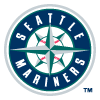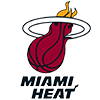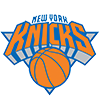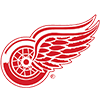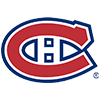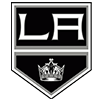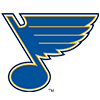2009 Mock First Round
With the "first year player draft" coming up next week, let's get out our crystal ball and do a mock draft for the first round.
Note that the draft class, aside from a few slots in the Top 10, is very much in flux and even the teams aren't sure what is going to happen on draft day. The scenario changes from day to day, even hour to hour as the draft approaches. With the nation's economy sour and some teams under financial strain, signability becomes even more important than it normally is.
With that in mind, here is one possible outcome. This is intended to be a logical scenario based on current knowledge, designed to generate interest and discussion. It shouldn't be considered a prediction in the normal sense. Draft predictions a week out are less-reliable than weather forecasts. Anything you read more than 12 hours before the actual draft has a good chance of not coming true.
Case in point: the draft stock of Missouri right-hander Kyle Gibson has taken a late hit, due to a significant loss of velocity in his last start. Gibson was expected to go fifth overall to the Orioles, but he was throwing in the mid-80s in his last start, and right now it is very unclear where he will go. He could retain his original position, or fall to later in the round, or drop out of the first round entirely. No one knows yet.
Gibson and Donavan Tate are the two big wild cards right now. If they don't go in the top few picks, ripple effects will be felt all down the draft.
1) Nationals: Stephen Strasburg, RHP, San Diego State
Many scouts and draft experts consider Strasburg to be the best pitching prospect of the last 30 years, and everyone thinks he's a remarkable talent. He won't be cheap, but there is no way the Nats can pass him up his combination of unworldly stuff (98-100 MPH, hard curveball), sharp command, and superb performance.
2) Mariners: Dustin Ackley, 1B-OF, North Carolina
Although he's played mostly first base in college, Ackley runs very well and should play center field as a pro. He's an extremely polished hitter with power, strike zone judgment, and the ability to hit for average. As the most advanced bat in the draft, he won't need long in the minors.
3) Padres: Donavan Tate, OF, Georgia HS
On pure talent, the most logical pick here would be Georgia prep outfielder Donavan Tate, but his high price tag, football option, Scott Boras ties, and North Carolina scholarship could make him too expensive for the Padres. Rumors a few days ago had the Padres leaning towards Vanderbilt lefty Mike Minor, who is very polished and more affordable than Tate. Minor seems like a potential overdraft, however, and the latest buzz has the Padres going back to Tate. Forth Worth right-hander Aaron Crow would be another strong option with loads of talent but an easier price tag than Tate.
4) Pirates: Aaron Crow, RHP, Fort Worth Cats
Crow should be reasonably affordable and won't take long to reach the majors. He doesn't have Strasburg's stuff (who does?) but is at least equivalent to any of the other top college pitchers in the draft class, showing solid command of a 90-96 MPH fastball and a strong slider. He is also close to major league ready.
5) Orioles: Kyle Gibson, RHP, Missouri
Mizzou's Kyle Gibson throws three pitches for strikes, and like Crow he isn't likely to price himself out of the early slots in the draft. He doesn't throw quite as hard as some of the other top arms, but his command is superb and he won't need much development in the minors. On the other hand, his velocity was way down in his most recent start, but opinion is mixed on how much it hurts his stock. If the Padres pass on Minor in favor of Tate, the Vanderbilt lefty would make a good backup option should Gibson's health prove problematic. The Orioles have shown the willingness to spend money in the draft lately, and Tate could easily go to them if he gets past the Padres.
6) Giants: Tyler Matzek, LHP, California HS
The Giants have a good track record with high school pitching arms, and Matzek would be a perfect fit here, with a lively 90-94 MPH fastball, solid secondary pitches, projectability and athleticism, and California ties. He won't be cheap, but is considered the best high school pitcher available by many experts. If Tate falls here, he would be another likely option for the Giants.
7) Braves: Zack Wheeler, RHP, Georgia HS
The Braves love home-state players, and they love high school pitchers. Ergo, Wheeler is the most logical choice here, and one backed up by current rumors. Both his fastball and curveball have excellent potential, and Wheeler's price tag is said to be reasonable.
8) Reds: Tanner Scheppers, RHP, St. Paul Saints
Scheppers' stuff is second only to Strasburg, but the shoulder injury that cut short his '08 season at Fresno State reduces his stock slightly from where it would otherwise be. He is reportedly fully healthy now, and working the rust off in independent ball. If the Reds are comfortable with his medical reports, it would be very hard to pass him up.
9) Tigers: Jacob Turner, RHP, Missouri HS
Turner is probably the most complete high school right-hander in the draft. He won't be cheap to sign, but the Tigers aren't afraid to deal with Scott Boras or spend money on young pitching, and have been consistently linked with Turner for a couple of weeks now.
10) Nationals: Chad Jenkins, RHP, Kennesaw State
Rumor from Washington is that the Nationals want a pitcher in this spot, preferably a college arm to match with Strasburg. Mike Leake of Arizona State would be one possibility. Vanderbilt's Minor would be another good choice, but persistent rumors have the Nats strongly interested in Jenkins out of Kennesaw State. He throws three major league pitches including a low-90s sinker, and has a great feel for pitching.
11) Rockies: Tim Wheeler, OF, Sacramento State
Once you get past the Top 10, the draft becomes much more difficult to project. The Rockies will have a wide range of attractive options, but the farm system could use a hitting boost and Wheeler, a multi-skilled outfielder with both power and speed potential, would fit well here as an affordable choice with good talent. Minor or Leake could also fit here if the Rockies want an advanced pitcher. If they want a high schooler, there are all sorts of options available.
12) Royals: Grant Green, SS, Southern Cal
The Royals are rumored to be interested in a catcher, and Boston College backstop Tony Sanchez has been mentioned, as well as some of the high school options. All of these guys seem like overdrafts, however, and the Royals have shown the willingness to shell out big-bucks in the draft lately. Tate, if he is still on the board, could be a surprise impact pick. A more realistic option would be Grant Green of USC, expected to be a sure Top 5 pick six months ago. His stock has dropped after an erratic spring, but the Royals love tools and Green still has those in droves.
13) Athletics: Mike Leake, RHP, Arizona State
Leake is polished, throws strikes, has very solid stuff, and has an impeccable performance record, the perfect Oakland draft choice. There are rumors that the Athletics are considering a high school pick here, possibly even Tate if available, but ultimately I think Leake makes the most sense.
14) Rangers: Shelby Miller, RHP, Texas HS
Miller has been linked with the Rangers for several weeks now, being a home state kid with a terrific fastball. He is less polished than some of the other arms, but his athleticism and projectability stand out.
15) Indians: Alex White, RHP, North Carolina
White is the Grant Green of pitchers: he was expected to go earlier than this, but inconsistency has hurt his stock. Still, of the remaining college arms he has the highest upside, and it would be hard for the Indians (in need of high-ceiling pitching) to pass him up. Minor would also be an option.
16) Diamondbacks: Rex Brothers, LHP, Lipscomb
With consecutive picks, the Diamondbacks have to find the right balance between talent and affordability. They reportedly want one pitcher and one hitter, and the fireballing lefty from Lipscomb would be a logical choice here. If they prefer safety over upside, Minor could be a fallback.
17) Diamondbacks: Bobby Borchering, 3B, Florida HS
Borchering has been linked with Arizona's second pick by numerous sources for several weeks. He has a strong power bat, and most scouts now believe he'll be able to remain at third base. A Brothers/Borchering combination would give Arizona a nice mix of present talent and upside.
18) Marlins: Chad James, LHP, Oklahoma HS
The Marlins have been linked with James, a hard-throwing Oklahoman with good projectability and an erratic, if promising, curveball, for some time. They don't shy away from high school pitching, and he fits well into the organization's developmental philosophy.
19) Cardinals: Eric Arnett, RHP, Indiana
The Cardinals are one of the more performance-oriented teams, but Arnett isn't just a guy with good college stats; he's made huge progress developing his slider and boosting his fastball velocity into the 92-94 range this spring, giving him both sabermetric and traditional cachet. Once again, Minor would be an option.
20) Blue Jays: Drew Storen, RHP, Stanford
Although Storen is a draft-eligible sophomore, he is already 21 and will likely be signable in the first round without too much trouble. Like Arnett, both statheads and traditional scouts like Storen, who could be a dominant closer with mid-90s heat and a good slider.
21) Astros: Mike Trout, OF, New Jersey HS
The Astros keep things close to the vest and aren't always predictable, and while home-state high school lefty Matthew Purke would fit well here on paper, he will be expensive to buy out of college. A position player with high upside is New Jersey prep Mike Trout, and the Astros showed interest in upside players last year. An intriguing surprise option, should Purke prove unaffordable but they want a pitcher, is Kansas prep Garrett Gould, a live-arm athlete who fits the profile of projectability that the Astros used with high school pitching in '08.
22) Twins: Matt Hobgood, RHP, California HS
The Twins are another team with a penchant for non-consensus choices. They could use a projectable arm, but given past history aren't likely to shell out big bucks for Purke. California prep Hobgood has a plus heater, should be affordable, and would slot nicely into a farm system that could use more fastballs.
23) White Sox: Everett Williams, OF, Texas HS
The White Sox have been linked consistently with Williams, who is no relation to General Manager Kenny Williams but fits the kind of profile the boss likes, owning a strong combination of power and speed. He's somewhat raw and has a Texas scholarship, but should be affordable.
24) Angels: Reymond Fuentes, OF, Puerto Rico HS
Another team with multiple early picks, the Angels need to rebuild a thinning farm system, but have to do so without busting the budget. Fuentes is a terrific athlete, which the Angels look for, and would fit nicely into the farm system as a reasonably priced choice with high upside. Mike Trout would also fit here if he gets past the Astros, Twins, and White Sox.
25) Angels: Tyler Skaggs, LHP, California HS
Skaggs is local, out of Santa Monica, and fits the Angels profile as a projectable athlete who needs some development time. Multiple sources link Skaggs to the Angels, and while some teams see him more as a supplemental or second round pick, it would make sense for the Angels to pull the trigger here to make sure they get him.
26) Brewers: Mike Minor, LHP, Vanderbilt
The Brewers could use a pitcher close to being major league ready, and Minor's late-season performances have boosted his stock. On the other hand, they often prefer pure upside to polish, making Kennesaw State's Kyle Heckathorn, or one of the remaining high school arms, a possibility.
27) Mariners: Jared Mitchell, OF, Louisiana State
A tremendous athlete with a football background, Mitchell has made progress refining his skills, but more work needs to be done. With Ackley at the top of the draft, Mitchell would be a nice second pick, adding strong additional outfield depth to the system.
28) Red Sox: Tony Sanchez, C, Boston College
The Sox need a catcher of the future, Sanchez is local, and should be ready for the majors relatively soon. The Red Sox aren't afraid to spend money, so a high price-tag player like Purke or Tate who falls this far would also be possible. California prep catcher Max Stassi would also be a fine choice here.
29) Yankees: Matthew Purke, LHP, Texas HS
The Yankees were unable to sign Gerrit Cole last year, but they have plenty of money and adding another high-impact, if expensive, talent to the farm system is logical. Either a dropping Tate or Purke would fit, but we'll go with Purke, adding an excellent heater to the organization. Another option with a local connection would be Trout.
30) Rays: Max Stassi, C, California HS
The Rays have a strong farm system but are short of catchers, and in this scenario the best one left on the board is Stassi, who has an excellent bat and average defensive skills. Other possibilities rumored in scouting circles include Arizona high school catcher Tommy Joseph, or North Carolina prep Wil Myers.
31) Cubs: A.J. Pollock, OF, Notre Dame
If Pollock lasts this long, he's a very logical pick for the Cubs, given their frequent acquisition of Notre Dame players as well as Pollock's solid across-the-board skills.
32) Rockies: Jiovanni Meir, SS, California HS
The Rockies have preferred college players in recent drafts, and with another pick coming up at 34 in the supplemental round, an affordable college guy would make sense here. On the other hand, the farm system could also use some middle infielders, and California prep Mier, owner of a strong glove, good speed, and some offensive upside, would make a nice long-term prospect to pair with collegian Tim Wheeler earlier in the round. If they stick with the college theme, a pitcher like Heckathorn or a wild card hitter with good stats such as Jason Kipnis or Rich Poythress could sneak in.
Article first appeared 6/4/09












